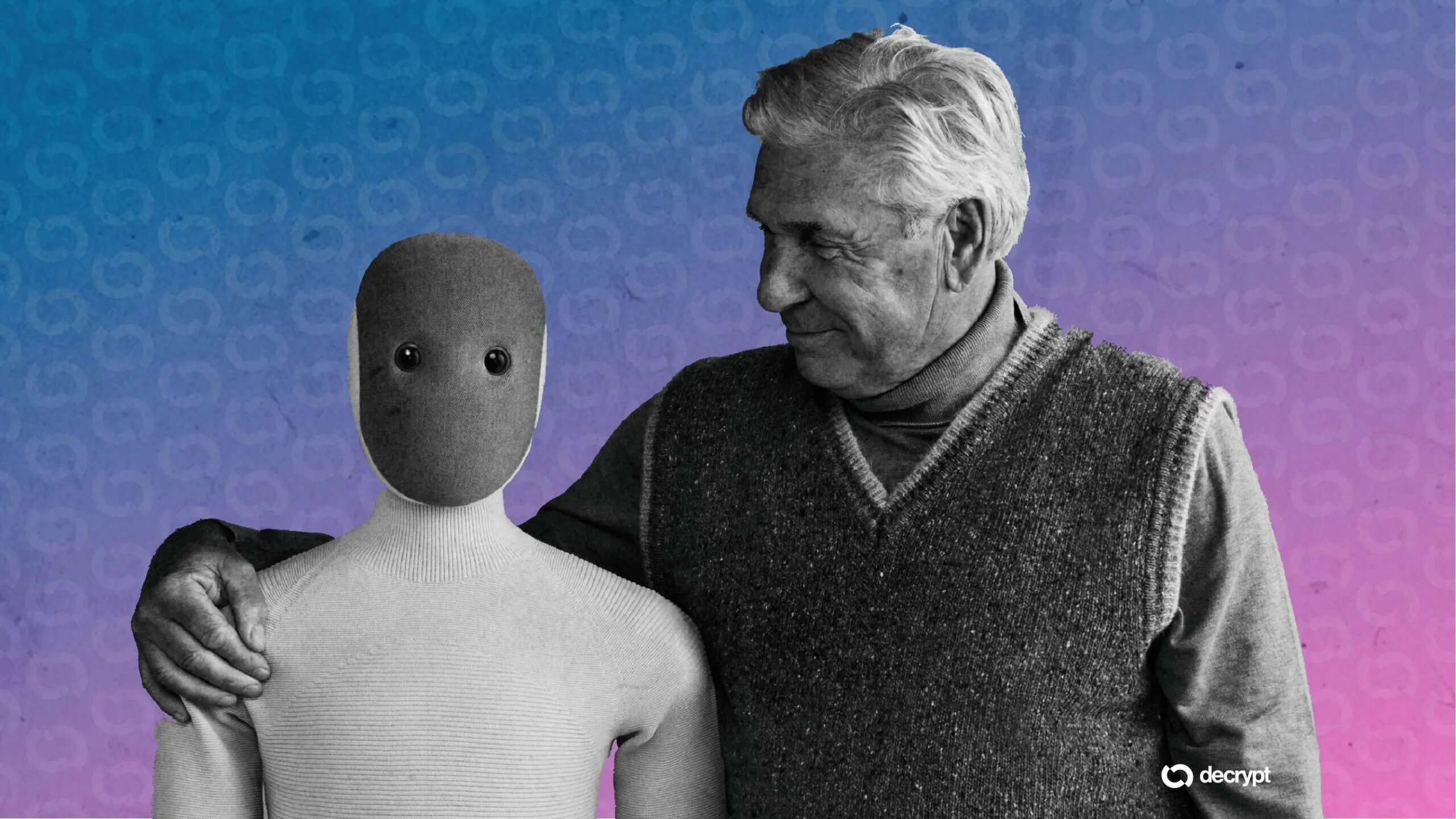In brief
- 1X unveiled NEO, a humanoid home robot designed for cleaning and personal assistance.
- NEO uses tendon-driven motors, soft materials, and a built-in AI model to perform chores and learn new tasks.
- Rivals, including Richtech, Unitree, and Wandercraft, are pushing humanoids into factories and research labs worldwide.
As robotics firms chase the dream of human-shaped helpers, Palo Alto–based 1X on Tuesday announced the launch of NEO, a household robot designed to automate daily chores and provide personalized assistance through built-in AI.
The launch comes as humanoid robots move from lab demos to a fast-growing market. Analysts expect the humanoid and service-robot sectors to top nearly $400 billion within a decade, driven by advances in embodied AI and rising labor shortages.
Companies including Tesla, Figure AI, and Agility Robotics are testing machines that walk factory lines and make deliveries. For 1X, the home is the next battleground, where safety, trust, and functionality will decide who wins the humanoid race.
"This all started a decade ago, working really hard on making what is Neo a reality. But to me personally, this started when I was like 10 years old," 1X founder and CEO Bernt Børnich said in a video presentation. "I grew up reading these beautiful books and watching these beautiful sci-fi movies where the future was all about how we as humans, we really focus on the things that matter to us."
At 66 pounds, NEO can lift 154 pounds and operate at just 22 decibels—quieter than a refrigerator.
It uses 1X’s patented tendon-drive actuation system to move gently and safely around people, and features human-level dexterity with 22-degree-of-freedom hands. The robot’s soft body, made from 3D-lattice polymer structures, houses built-in Wi-Fi, Bluetooth, and 5G connectivity.
"Neo is a humanoid companion designed to transform your life at home," 1x Vice President of Product and Design Dar Sleeper said. "It combines AI and advanced hardware to help with daily chores and bring intelligence into your everyday life. Neo is engineered from the ground up for safety. Its tendon-driven body is quiet and lightweight. Its low-energy motions make it uniquely safe for you and your home."
Under the hood, NEO’s onboard large language model enables it to hold conversations, recall context, and perform tasks via voice commands. It can fold laundry, organize shelves, or tidy rooms, and learn new chores over time with human guidance.
“With the click of a button or a simple verbal command, NEO transforms into a personal housekeeper; tackling tasks like folding laundry, organizing shelves, and tidying spaces,” 1x said. “For any chore that NEO doesn't yet know, owners can schedule a 1X Expert to guide it through unknown tasks, helping NEO learn while getting the job done.”
Customers can buy a NEO through a $499 monthly subscription or a one-time purchase of $20,000. Both options require a $200 deposit to reserve a unit.
A crowded field
NEO’s debut follows a surge in humanoid development across industries. On Tuesday, Las Vegas-based Richtech Robotics unveiled Dex, a mobile humanoid robot built for manufacturing and logistics work.
Built using NVIDIA’s Jetson Thor platform, Dex operates for a full workday on a single charge and performs tasks ranging from machine operation to quality inspection.
“Humans are great at object manipulation, and wheels are best for fast, efficient, and stable transportation,” President of Richtech Matt Casella said in a statement. “So we designed Dex to travel like a machine and perform tasks like a person.”
Chinese manufacturer Unitree Robotics is taking a budget approach with its four-foot-tall G1 humanoid. Meanwhile, researchers at China’s National University of Defense Technology and appliance maker Midea Group are teaching robots to move more like humans using a system called HumanoidExo. The wearable suit captures full-body motion and converts it into training data.
In June, Paris-based Wandercraft announced that it would shift its focus from wearable exoskeletons to fully autonomous humanoid robots.
“We’re seeing humanoid robots everywhere: in the U.S., in China, from Tesla, from Figure AI,” Wandercraft CEO Matthieu Masselin previously told Decrypt.
As humanoids grow more lifelike, however, studies show that moderate realism increases trust—but extreme human likeness can trigger discomfort, a phenomenon known as the uncanny valley.
The rapid growth of the humanoid robot industry underscores just how quickly technology like NEO is moving from prototypes to products—transforming robots from factory tools to helpers that fold our laundry.
"Eventually, NEO will become fully autonomous, capable of helping you with anything around the house," Børnich said. "The NEO you get today will only get better. And as we keep shipping features, it'll be more and more useful in your everyday life."
1x did not respond to Decrypt's requests for comment.

